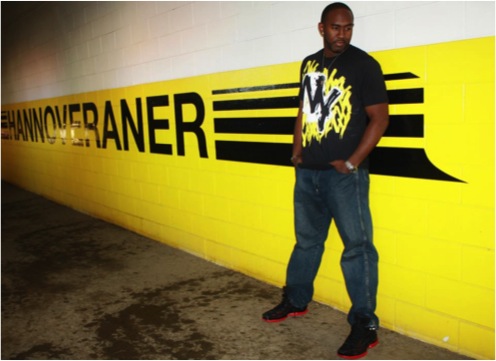By Alexander Britell
After an extremely difficult childhood growing up in Castries, St Lucia, Arnold Henry became the first St Lucian to receive a Division 1 Men’s College Basketball scholarship in the United States as a freshman at the University of Vermont. Since finishing college in 2009, Henry has worked to inspire others to overcome the kinds of challenges he faced as a youth – publishing his autobiography, Hanging on to My Dreams, in July. Looking ahead to a potential career in professional basketball in Europe, Henry talked to Caribbean Journal about the new book, the culture of basketball in St Lucia, and the message of his story.
What made you decide to write the book?
I wanted to share my story because I believe that was an inspiring story for others who have had many failures in their lives. I don’t believe that because of a failure, it means that you must give up. I wanted to inspire someone to feel that despite their obstacles and failures, you can always overcome them and still be able to achieve your dreams or aspirations. The whole writing process started when I graduated from college. I kept a lot of journals as a kid – since I was 10 years old, and I just reflected back on all my writings, and realized that I had an interesting story to tell.
What was the biggest challenge in writing the book?
One of the biggest challenges was that I have a lot of people in my life I really love, and just sharing all of the events that happened in their lives in my story was probably the hardest part. I wasn’t sure how they were going to take it, because there were a lot of bad situations that happened in my life, and that goes back to my childhood. During my childhood days, I grew up in a very domestically violent home. And sharing what happened in their lives was probably the hardest part. I really didn’t know how they were going to take it – writing about the domestic violence in my life and all of that, the absence of my father, and his children, how they were going to take it.
Talk about the transition from St Lucia to America.
In the transition from St Lucia to America, I wasn’t used to the American culture. And it was mostly the new environment – the first environment I went to was in Virginia, and I had to get used to a lot of racism. I actually experienced racism when I was going to school there. And with organized basketball, I wasn’t as familiar with that as well.
What was the basketball culture like in St Lucia growing up?
Basketball was more of a hobby. We don’t get a lot of opportunities to play on a national team; basketball scholarships are very rare back home and it wasn’t something we could look forward to. Growing up, basketball was just something you would do for fun with your friends, and as far as competition, we played for our school teams, but that was about it. We never really had that kind of goal to play professionally or to get a basketball scholarship – it was something that came to very fortunate people.
How much has basketball’s popularity changed since you left?
The last time I visited St Lucia, in 2010, the sport had sort of died. It was as if no one really cared about the sport anymore. When I was growing up, the local courts used to be filled with youth, with kids coming out there to play. One thing I’d like to mention is that back then the courts were horrible. The surfaces of all the courts were gravel, and the rims were very shaky – there were holes in the backboards. It goes to show you how much we loved the sport. But the last time I went home, the government took more care toward the sport, and actually fixed the courts. But the people that come out to play aren’t that that many. The opportunities that are there after secondary school are not that great, so people don’t look forward to something after school sports, after college.
What do you want people to take away from your book?
I want them to be inspired – I want them to know that in life we have lots of obstacles that come our way, but the more important part is how you bounce back from all your rejection
